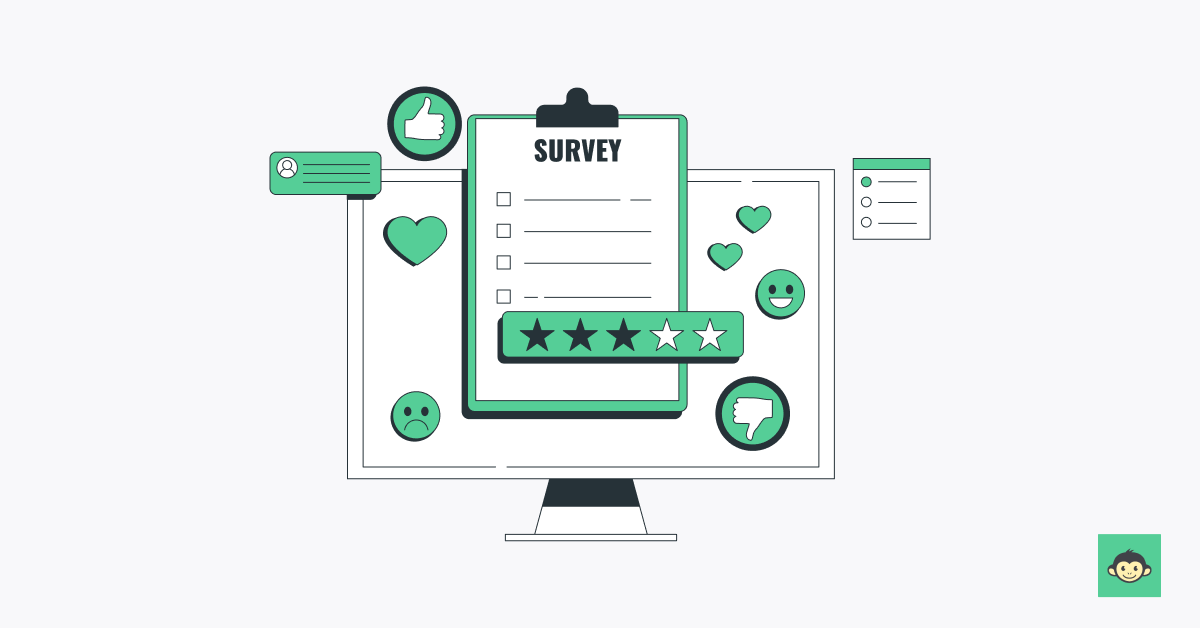Why is collaboration important in health care: Top strategies improve collaboration in 2024

The healthcare landscape is complex, with patients often requiring care from a variety of specialists. In this environment, effective collaboration among doctors, nurses, physical therapists, and other healthcare professionals is no longer a nicety – it's essential.
We'll explore the benefits of teamwork across multiple health professions, from improved patient outcomes and reduced medical errors to increased job satisfaction for providers.
But fostering collaboration isn't always easy. We'll also provide actionable strategies to break down silos and build a culture of open communication within your healthcare organization.
By the end of this blog, you'll understand the transformative power of collaboration in the healthcare industry and gain practical tips to implement it in your own setting.
Why does teamwork in healthcare matter?

Teamwork in healthcare is paramount for providing high-quality patient care and ensuring patient safety. Through collaboration among healthcare professionals, patients benefit from comprehensive and coordinated treatment plans that address their holistic needs.
Effective teamwork minimizes errors and adverse events by facilitating cross-checking and risk mitigation among team members.
This coordinated approach enhances efficiency in workflow, leading to reduced wait times and improved overall operational effectiveness. Moreover, studies have shown that teamwork correlates with better patient outcomes, including shorter hospital stays and lower readmission rates.
Patient satisfaction also increases when they perceive their healthcare providers working together seamlessly, fostering trust in the healthcare system. Additionally, teamwork promotes professional development by facilitating knowledge sharing and skill development among team members.
Furthermore, it encourages adaptability and innovation, allowing healthcare teams to respond effectively to changes in healthcare practices and technologies.
Overall, teamwork plays a vital role in healthcare, promoting better patient care, safety, satisfaction, and professional growth other healthcare providers, while driving continuous improvement and innovation in healthcare delivery.
Why is collaboration important in health care?

Collaboration is crucial in healthcare for several reasons. Let’s take a look at them.
- Comprehensive care: Collaboration ensures that patients receive comprehensive care by bringing together professionals from different disciplines to address various aspects of their health needs.
This multidisciplinary approach allows for a more holistic understanding of patient conditions and leads to more effective treatment plans. - Shared expertise: Healthcare professionals possess diverse skills and expertise. Collaboration allows them to pool their knowledge and experience to develop optimal treatment strategies, particularly in complex cases where multiple perspectives are necessary for accurate diagnosis and management.
- Improved communication: Collaborative environments foster open communication channels among healthcare team members. Effective communication ensures that critical information is shared promptly, reducing the likelihood of errors, misunderstandings, or oversights that could compromise patient safety or care quality.
- Efficient resource utilization: Collaboration helps healthcare organizations optimize resource allocation by coordinating care delivery and avoiding duplication of services. By working together, healthcare professionals can streamline processes, minimize inefficiencies, and make better use of available resources to meet patient needs effectively.
- Enhanced patient experience: Collaborative care promotes a seamless and coordinated patient experience. When healthcare providers work together, patients benefit from smoother transitions between different stages of care, reduced wait times, and a more cohesive approach to addressing their concerns, leading to greater satisfaction with their healthcare experience.
- Innovation and research: Collaboration fosters innovation and facilitates research efforts in healthcare. By working together, professionals can explore new treatment approaches, evaluate emerging technologies, and conduct research studies that advance medical knowledge and improve patient outcomes.
- Adaptability to change: In today's dynamic healthcare landscape, collaboration is essential for adapting to changes in patient needs, regulations, and healthcare technologies. Collaborative teams are better equipped to respond quickly and effectively to evolving challenges and opportunities, ensuring continued delivery of high-quality care.
How does collaboration improve patient care?

Collaboration significantly enhances patient care by leveraging the collective expertise and resources of multidisciplinary healthcare teams. Firstly, it promotes a comprehensive approach to addressing patient needs.
Collaboration among professionals from various specialties ensures that all aspects of a patient's condition are considered, leading to more accurate diagnoses and tailored treatment plans.
For example, in cancer care, collaboration among oncologists, surgeons, radiologists, and nurses allows for a personalized treatment approach that considers each patient's unique characteristics.
Secondly, collaboration improves care coordination and continuity. Through effective communication and information sharing among team members, healthcare providers can seamlessly transition patients between different stages of care, such as from primary care to specialty services or the intensive care unit or from hospital to home care.
This reduces the likelihood of gaps in care and ensures that patients receive timely and appropriate interventions at every stage of their healthcare journey.
Additionally, it also fosters a culture of shared decision-making and patient involvement. When healthcare professionals work together, they can collaborate with patients and their families to develop care plans that align with the patient's preferences, values, and goals.
This patient-centered approach improves treatment adherence and satisfaction and enhances outcomes by empowering patients to actively participate in their own care management.
7 Common challenges for collaboration in health care

Collaboration in healthcare faces several common challenges, including:
- Communication barriers: Ineffective communication among healthcare professionals can hinder collaboration. Miscommunication or lack of clarity regarding roles, responsibilities, and patient information may lead to errors, delays in care delivery, or fragmented care.
- Hierarchy and turf wars: Hierarchical structures and professional boundaries within healthcare organizations can create barriers to collaboration. Power dynamics and competing interests between different specialties or departments may impede effective teamwork and decision-making, undermining the quality of patient care.
- Information silos: Fragmentation of information across different systems or departments can hinder collaboration. Without access to comprehensive patient data or interoperable health records, healthcare teams may struggle to coordinate care effectively and make informed clinical decisions.
- Time constraints and workload pressures: Healthcare professionals often face heavy workloads and time constraints, which can limit their ability to engage in collaborative activities such as multidisciplinary meetings or care coordination efforts. High patient volumes and competing demands may make it challenging to prioritize collaboration amidst other clinical responsibilities.
- Resistance to change: Resistance to change or reluctance to adopt new collaborative practices or technologies can impede progress. Healthcare professionals may be hesitant to embrace collaborative approaches that require them to modify established workflows or relinquish autonomy, leading to resistance and slow adoption of collaborative initiatives.
- Lack of interdisciplinary understanding: Differences in professional backgrounds, training, and perspectives may create misunderstandings or conflicts among healthcare team members. Without a shared understanding of each other's roles, contributions, and expertise, interdisciplinary collaboration may be hindered, affecting patient care outcomes.
- Resource constraints: Limited resources, including staffing, funding, and infrastructure, can pose significant challenges to collaboration in healthcare. Inadequate resources may restrict access to necessary support services or technologies, hindering the ability of healthcare teams to work together effectively and provide optimal care to patients.
10 Benefits of interprofessional collaboration in healthcare

Interprofessional collaboration in healthcare offers numerous benefits indicating that healthcare organizations should try their best to implement the most significant benefits of it.
- Comprehensive patient care: Interprofessional collaboration ensures that patients receive holistic care that addresses their physical, mental, and emotional needs by integrating perspectives from various healthcare disciplines.
- Improved patient outcomes: Collaborative care leads to better patient outcomes, including reduced hospital readmissions, fewer complications, and improved recovery rates, as it allows for more effective treatment plans tailored to individual patient needs.
- Enhanced patient safety: Through shared decision-making and cross-checking, interprofessional teams can identify and mitigate potential errors, minimizing adverse events and promoting patient safety.
- Efficient resource utilization: Collaboration optimizes resource allocation by coordinating care delivery and avoiding unnecessary duplication of services, leading to improved efficiency and cost-effectiveness in healthcare delivery.
- Enhanced continuity of care: Collaborative care ensures smooth transitions between different stages of care, such as from hospital to home care, facilitating continuity and reducing the likelihood of gaps in care that could compromise patient outcomes.
- Improved communication: Interprofessional collaboration fosters open communication channels among healthcare team members, promoting effective information sharing, interdisciplinary discussions, and coordinated care planning.
- Patient-centered care: By involving patients as active participants in the care process, interprofessional collaboration ensures that treatment plans align with patient preferences, values, and goals, leading to greater satisfaction and engagement in healthcare decisions.
- Professional development: Collaborative environments provide opportunities for healthcare professionals to learn from each other, share best practices, and expand their knowledge and skills through interdisciplinary collaboration, promoting ongoing professional development.
- Innovation and research: Collaboration stimulates innovation and facilitates research efforts by fostering interdisciplinary collaboration, enabling the exploration of new treatment approaches, evaluation of emerging technologies, and advancement of medical knowledge.
- Promotion of health equity: Interprofessional collaboration supports the delivery of culturally competent care that addresses the diverse needs of patients from different backgrounds, promoting health equity and reducing disparities in healthcare access and outcomes.
How to implement collaboration in healthcare: 5 Top strategies to try in 2024?

In 2024, healthcare organizations can implement collaboration through the following top strategies:
1. Interdisciplinary team training
Provide comprehensive training programs that emphasize the importance of collaboration and effective communication among healthcare professionals.
Offer workshops, simulation exercises, and continuing education opportunities to enhance teamwork skills and promote a culture of collaboration across multiple disciplines together.
2. Utilization of technology
Implement digital tools and platforms designed to facilitate communication and information sharing among healthcare team members.
Utilize telehealth platforms, secure messaging systems, and electronic health records (EHRs) software with interoperability features to the health systems and enable seamless collaboration and real-time access to patient information.
3. Establishment of interprofessional care teams
Create interprofessional care teams comprised of members from different disciplines, including physicians, nurses, pharmacists, social workers, and allied health professionals.
Encourage interprofessional education through regular team meetings, case conferences, and huddles to foster collaboration, share expertise, and develop coordinated care plans for complex patients.
4. Promotion of shared decision-making
Encourage shared decision-making processes that involve patients as active partners in their care.
Provide educational resources and decision aids to empower patients to participate in healthcare decisions alongside their providers, ensuring that treatment plans align with patient preferences, values, and goals.
5. Implementation of quality improvement initiatives
Establish quality improvement initiatives focused on enhancing collaboration and interdisciplinary teamwork within healthcare organizations.
Encourage staff participation in quality improvement projects that aim to streamline processes, improve communication, and optimize care delivery, ultimately leading to better patient outcomes and experiences.
Significance of team collaboration surveys in healthcare to improve productivity

Team collaboration surveys in healthcare are essential for improving productivity by assessing current collaboration practices among interdisciplinary teams. By gathering feedback from frontline staff, these surveys identify barriers to productivity, such as communication breakdowns or hierarchical structures.
They promote a culture of continuous improvement by monitoring progress over time and evaluating the impact of interventions. Moreover, collaboration surveys align with organizational goals related to productivity, quality of care, and patient outcomes, ensuring that efforts to enhance teamwork contribute to broader objectives.
Involving staff in surveys empowers them, fostering a sense of ownership and accountability. Additionally, benchmarking against industry standards and best practices allows organizations to learn from others and adopt successful strategies.
Overall, collaboration surveys facilitate the identification of challenges and the implementation of targeted interventions to improve collaboration and productivity in healthcare settings.
Role of an employee engagement platform in healthcare to increase collaboration

An employee engagement platform plays a crucial role in healthcare by facilitating increased collaboration among healthcare professionals. Firstly, these platforms provide a centralized hub for communication, enabling real-time interaction and information sharing among team members across different departments and locations.
By fostering open channels for dialogue, healthcare professionals can easily collaborate on patient care, share insights, and seek input from colleagues, leading to more informed decision-making and coordinated care delivery. Effective collaboration enhances the responsiveness of healthcare call centers, allowing support teams to provide real-time assistance and improve the overall patient experience when call handling.
Secondly, employee engagement platforms promote transparency and visibility within healthcare organizations. Through features such as news feeds, forums, and project management tools, employees gain insight into organizational initiatives, updates, and goals, fostering a shared understanding of the organization's mission and priorities.
This transparency enhances trust and alignment among team members, encouraging collaboration towards common objectives and improving team member’s overall productivity.
Moreover, employee engagement platforms facilitate the exchange of best practices and knowledge sharing among healthcare professionals. Through virtual communities, discussion forums, and resource libraries, employees can access a wealth of expertise and resources from peers across the organization.
This promotes continuous learning, innovation, and professional development, as healthcare professionals leverage each other's experiences and insights to improve patient care and outcomes.
Conclusion
Fostering collaboration in healthcare through initiatives such as team collaboration surveys and employee engagement platforms is paramount for enhancing productivity, quality of care, and patient outcomes.
These strategies enable healthcare organizations to assess current collaboration practices, identify barriers to productivity, and engage frontline staff in continuous improvement efforts.
By aligning with organizational goals and benchmarking against industry standards, collaboration initiatives promote a culture of teamwork and empower staff to contribute to positive change.
Through targeted interventions and the utilization of technology, healthcare organizations can create environments that prioritize effective communication, interdisciplinary collaboration, and shared decision-making.



